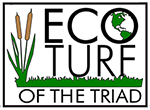We would be happy to provide pricing for you on any of your projects. Our service is second to none and in most cases we can be on a job locally within 24 hours.
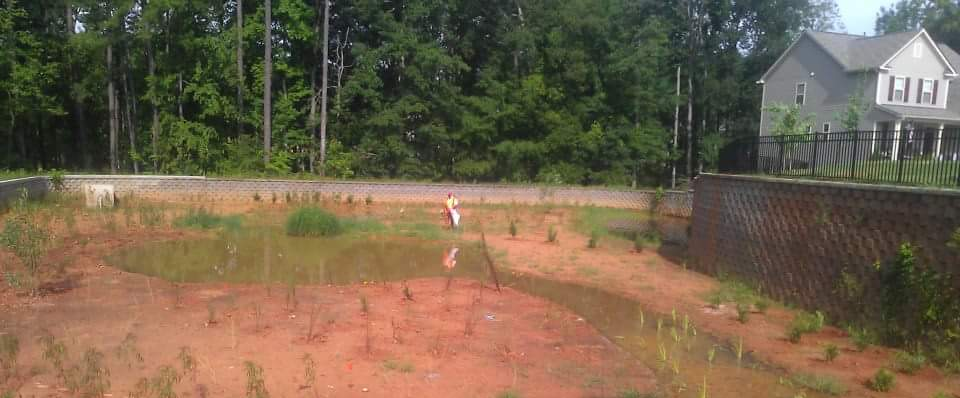 Defined by the North Carolina Department of Environmental Quality “Wetlands are areas where water covers the soil for least part of the year and include a variety of natural systems, such as marshes, swamps, bottomland hardwoods, pocosins and wet flats. While each wetland type looks and functions differently, the prolonged presence of water causes the growth of specially adapted plants and the development of wetland (hydric) soils.” We encourage you to visit https://deq.nc.gov/about/divisions/coastal-management/coastal-management-estuarine-shorelines/wetlands to learn more about North Carolina wetlands.
Defined by the North Carolina Department of Environmental Quality “Wetlands are areas where water covers the soil for least part of the year and include a variety of natural systems, such as marshes, swamps, bottomland hardwoods, pocosins and wet flats. While each wetland type looks and functions differently, the prolonged presence of water causes the growth of specially adapted plants and the development of wetland (hydric) soils.” We encourage you to visit https://deq.nc.gov/about/divisions/coastal-management/coastal-management-estuarine-shorelines/wetlands to learn more about North Carolina wetlands.
NCDEQ Stormwater Design Manual describes a bioretention cell (Bio-cells) as an “excavation that is filled with a sandy media and plants. It is designed to temporarily hold and filter stormwater.  Bioretention cells are one of the most versatile SCMs: They can be installed in a variety of soil types from clay to sand and in a wide variety of sites. They are also one of the most effective SCMs for removing pollutants, because they use many different pollutant removal mechanisms, including infiltration, absorption, adsorption, microbial action, plant uptake, sedimentation, and filtration.” More information about bioretention cells is contained in this PDF NC_EQ_C-2_Bioretention .
Bioretention cells are one of the most versatile SCMs: They can be installed in a variety of soil types from clay to sand and in a wide variety of sites. They are also one of the most effective SCMs for removing pollutants, because they use many different pollutant removal mechanisms, including infiltration, absorption, adsorption, microbial action, plant uptake, sedimentation, and filtration.” More information about bioretention cells is contained in this PDF NC_EQ_C-2_Bioretention .
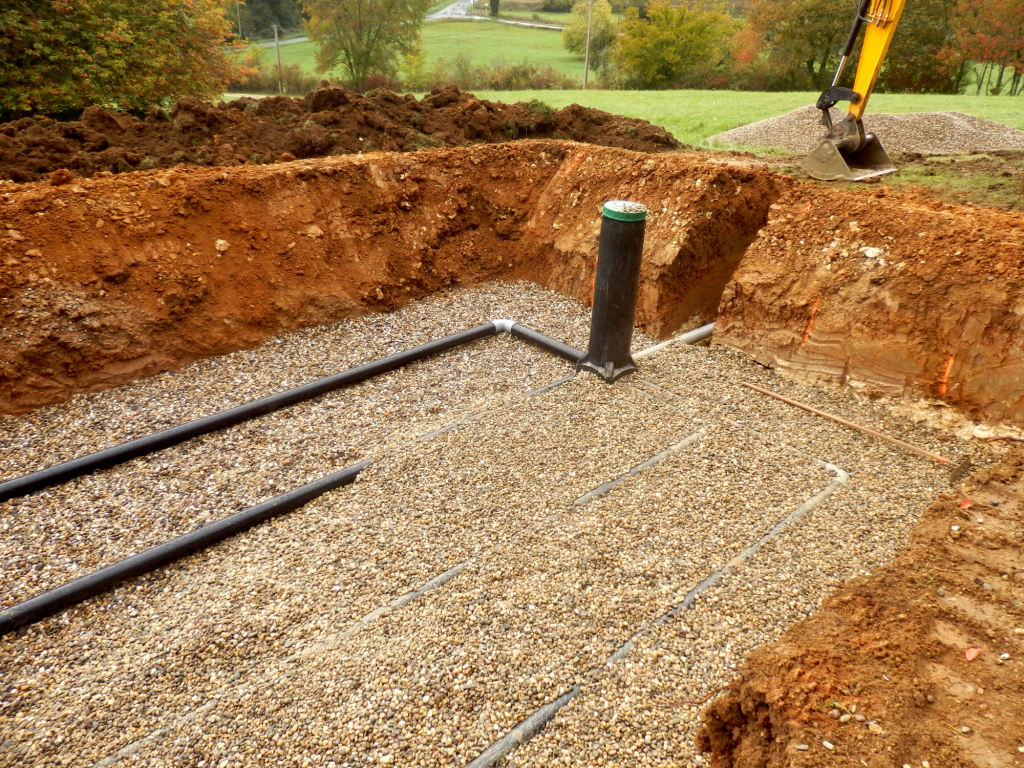 The NCDEQ Stormwater BMP Manual describes a “sand filter is a surface or subsurface device that percolates stormwater down through a sand media where pollutants are filtered out. Sand filter effluent is usually discharged. Sand filters are capable of removing a wide variety of pollutant concentrations in stormwater via settling, filtering, and adsorption processes. Sand filters have been a proven technology for drinking water treatment for many years and now have been demonstrated to be effective in removing urban stormwater pollutants including TSS, BOD, fecal coliform, hydrocarbons and metals. Since sand filters can be located underground, they can also be used in areas with limited surface space.” click on this PDF to learn more about sand filters. NC_EQ_C-6_Sand_Filter
The NCDEQ Stormwater BMP Manual describes a “sand filter is a surface or subsurface device that percolates stormwater down through a sand media where pollutants are filtered out. Sand filter effluent is usually discharged. Sand filters are capable of removing a wide variety of pollutant concentrations in stormwater via settling, filtering, and adsorption processes. Sand filters have been a proven technology for drinking water treatment for many years and now have been demonstrated to be effective in removing urban stormwater pollutants including TSS, BOD, fecal coliform, hydrocarbons and metals. Since sand filters can be located underground, they can also be used in areas with limited surface space.” click on this PDF to learn more about sand filters. NC_EQ_C-6_Sand_Filter
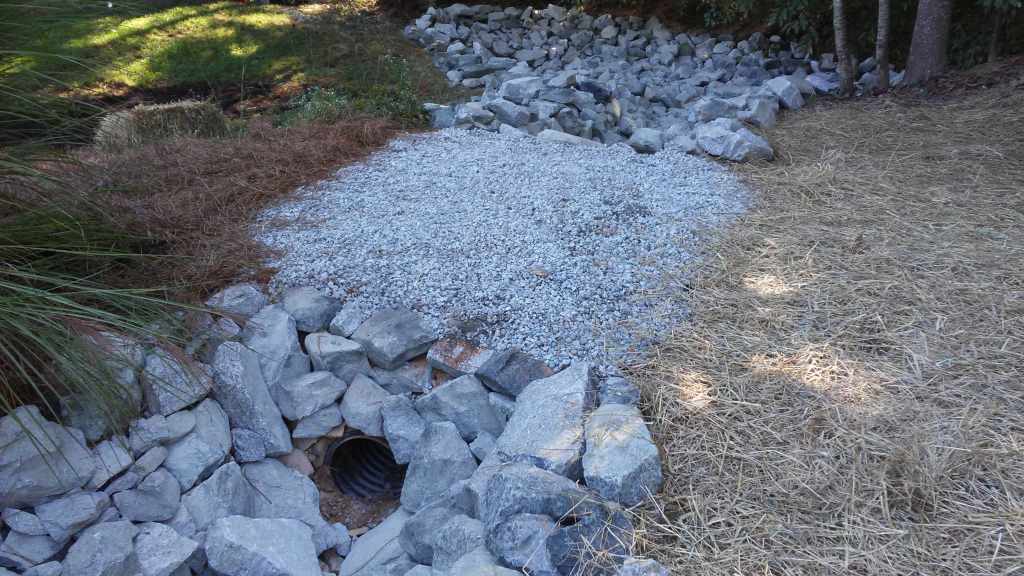 NCDEQ Stormwater BMP Manual states “Swales remove pollutants from stormwater by biofiltration, settling, and infiltration. Grassed swales filter pollutants as stormwater runoff moves through the leaves and roots of the grass. By reducing flow velocities and increasing a site’s time of concentration, grassed swales contribute to reducing runoff peaks. Grassed swales that are designed with check dams or incorporate depression storage promote infiltration and can help contribute to satisfying a site runoff capture/storage requirement.” More information regarding swales is here; NC_EQ_C-11_Treatment_Swale
NCDEQ Stormwater BMP Manual states “Swales remove pollutants from stormwater by biofiltration, settling, and infiltration. Grassed swales filter pollutants as stormwater runoff moves through the leaves and roots of the grass. By reducing flow velocities and increasing a site’s time of concentration, grassed swales contribute to reducing runoff peaks. Grassed swales that are designed with check dams or incorporate depression storage promote infiltration and can help contribute to satisfying a site runoff capture/storage requirement.” More information regarding swales is here; NC_EQ_C-11_Treatment_Swale
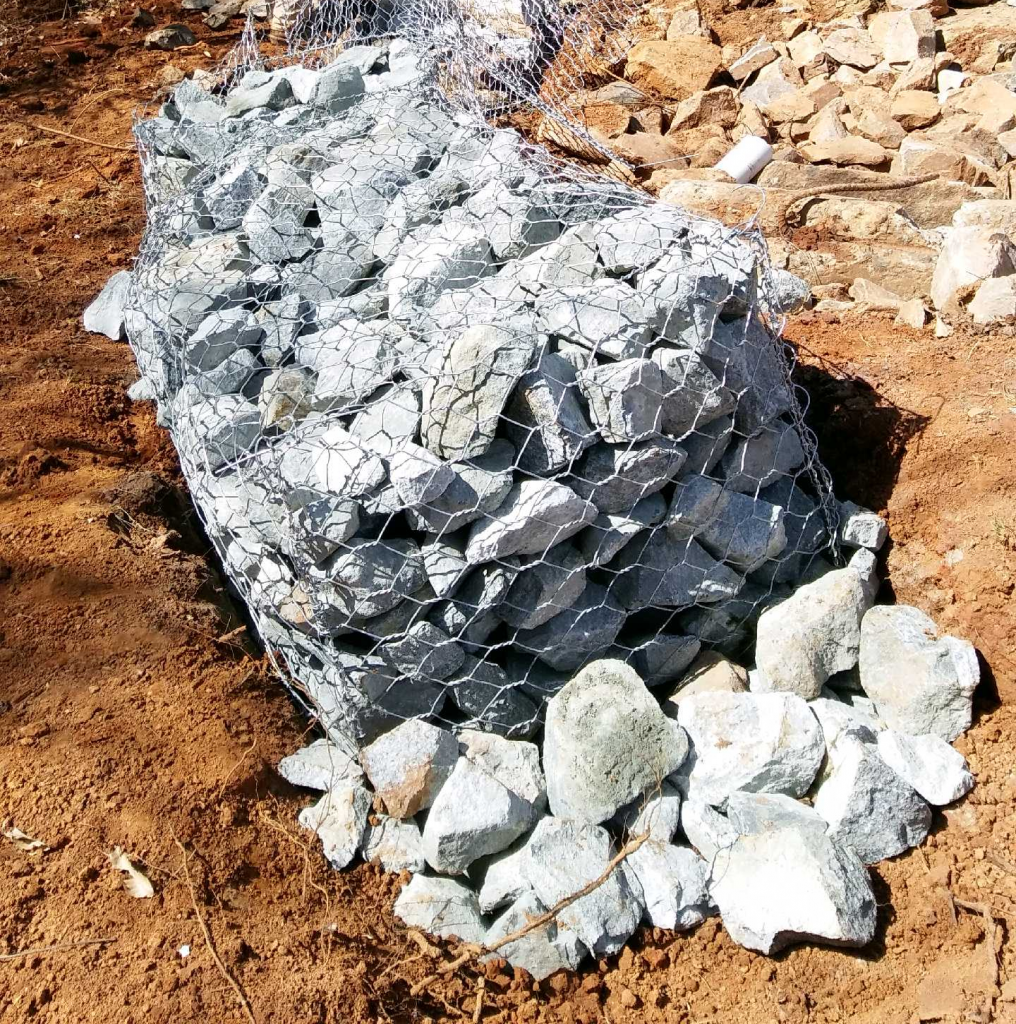 Gabion baskets are used for a variety of stormwater management applications. A retaining wall made of stacked stone-filled gabions tied together with wire battered (angled back towards the slope), or stepped back with the slope, rather than stacked vertically will control stormwater on slopes from eroding the soil. Gabions are also used as fish screens on small streams.
Gabion baskets are used for a variety of stormwater management applications. A retaining wall made of stacked stone-filled gabions tied together with wire battered (angled back towards the slope), or stepped back with the slope, rather than stacked vertically will control stormwater on slopes from eroding the soil. Gabions are also used as fish screens on small streams.
Maintenance, repair, and inspections, for all Storm Water Control devices for;
- Wet and Dry Detention ponds
- Drainage; includes surface drainage and subsurface drainage.
- Landscape Construction includes; landscape installation, irrigation repair and installation, landscape renovation.
- Seeding includes; permanent seeding, temporary seeding, Hydro Seeding
- Silt Fence includes; Fabric only, wire backed, super silt fence, silt fence outlets.
- Inlet protection includes; block and gravel, curb inlet protection.
♦ NC Storm Water Certifications #’s 1758, 1796, 1831, 2713, 2714
♦ NC Aquatics, Turf and ornamental, Highway right of way, pesticide license # 2782
♦ NC Landscape Contractors license # 180
♦ NC Irrigation Contractors License #116
♦ NC Certified Turf Grass Professional ID # 18531
♦ Certified Landscape Technician (national)

Eco Turf of the Triad
